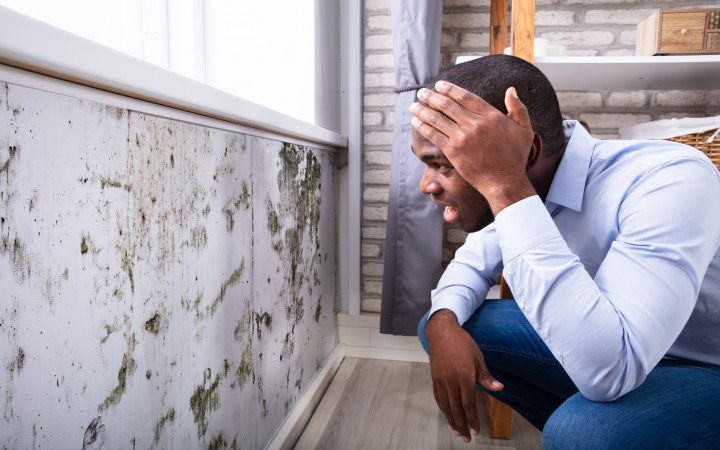Today’s Wonder of the Day was inspired by Wonder Friend. Wonder Friend Wonders, “What Is Mildew?” Thanks for WONDERing with us, Wonder Friend!
Have you ever been in a damp and humid bathroom that had thin layers of black film in cracks and crevices? You may have even smelled an unpleasant odor. If so, then you've met mildew.
Mildew is not quite as straightforward as some people think, though. The word “mildew" is used to refer to different types of molds and fungi. Some of these can be very different than what most people think of as mildew.
For example, gardeners and scientists use mildew to refer to powdery or downy mildew, which is made up of various species of fungi that grow on plants. These types of mildew grow on plants as parasites and can be very harmful to crops. They look like white or gray dots on plants.
More commonly, though, most people say mildew when referring to mold growth. Sometimes you even hear the two words used together: mold and mildew. Although both are forms of mold, we usually use mold to describe mold that grows on food. Mildew is usually used to describe mold that grows on objects, such as shower walls, paper and clothing.
Mildew likes to grow in hot and humid (moist) conditions. A damp shower in a house heated up by the summer sun is the perfect spot for mildew to grow and multiply quickly.
The particular black mildew that likes to grow in showers is usually Stachybotrys chartarum, which is a specific type of mold. In addition to being ugly to look at, it also produces a strong musty odor that often tips off people to the presence of mildew.
Mildew is not something you want to treat lightly, as it can be harmful to your health. Some mildew contains toxins — called mycotoxins — that can cause allergic reactions or illnesses in certain people. Mildew can cause a wide variety of problems, including headaches, coughing and irritation in the eyes and throat.
So how do you get rid of mildew? Once you see it, you need to remove it. Bleach is one of the most popular cleaners used to kill mildew. You can also use vinegar or a wide variety of mildew cleaning supplies sold at the store.
After you get rid of mildew, you'll want to keep it from returning. In a hot and humid area, you may want to consider removing as much moisture as possible. Using an exhaust fan in the bathroom and wiping down shower walls after a shower help a lot. Some people also use machines called dehumidifiers to help dry the air.




